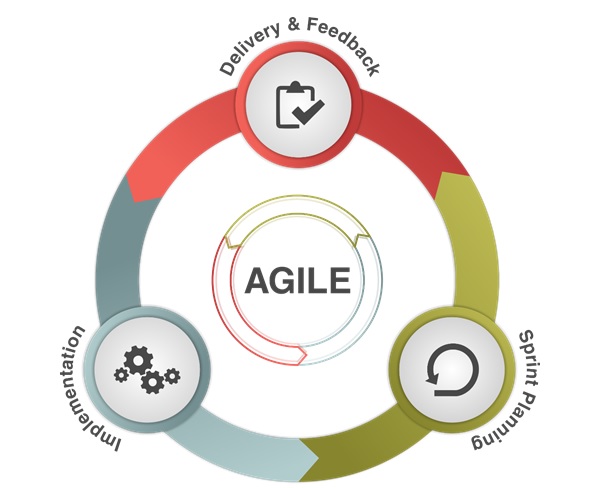The current state of affairs has brought every business in every industry to a new threshold in agile marketing implementation. CoronaVirus and the pandemic of 2020 have had an impact of some kind on businesses, both small and large, worldwide.
A certain, small percentage of businesses are busier than ever while, most have had their viable business model interrupted significantly or completely. The topic of agile marketing has risen to the top of many a business leader’s minds, but perhaps this approach should have been in play all along. Let’s talk about the fundamentals of agile marketing and a tactical approach to folding it into your marketing operations during the pandemic and beyond.
How to Implement Agile Marketing During Tough Times + Always
Defining Agile Marketing - It’s always a good idea to start at the beginning. Agile marketing is a term that is thrown around frequently, but let’s make sure we have a strong understanding of the definition before we dive into tactics. Agile marketing is a term that found its origins in the software development space. At a high level, agile marketing can be defined as a marketing strategy where marketing committees or teams work on projects with short term goals, often referred to as sprints. These sprints are rolled up toward larger, longer term goals, but they allow for adjustment along the way based on results and other variables that may require a pivot.
Foundations of agile marketing include:
-
- Art of the Pivot - Ability to respond quickly to changes that could be posed by technical limitations/advances, market fluctuations, competitive developments, etc.
- Data-driven Efforts - Reliance on testing and data to support initiatives to avoid assumptions, opinions and missteps.
- Efficiency Improvements - Focus on collaboration across teams to prevent silos.
- Communication Flow - Emphasis on routine check-in and progress reports to identify workflow bottlenecks and hiccups that might impede progress.
Value-added benefits of agile marketing (in addition to successful marketing campaigns and lifts to the bottom line) include:
-
- You’ll be prepared for unprecedented events. Some events can be projected into an annual marketing calendar. Of course, our minds go to the 2020 pandemic, however, this also applies to a new competitor that enters the marketplace, a supply challenge or a multitude of other events that pop up unexpectedly. If you are already in the agile marketing-mode, you are already poised to pivot when an event happens that requires it. In essence, you’re one step ahead of the game
- Your employees will be more engaged, empowered and set up for growth. Employees in agile teams are typically more satisfied with jobs because they know exactly what is expected of them, thrive in a transparent environment free from red tape and bureaucracy and are set up to succeed. This well-oiled team can translate into increased productivity as well as a strong culture that attracts and retains top talent.
- Customer experience will be stellar. One of the most important consequences of adopting agile marketing tactics is related to CX (customer experience). Your marketing initiatives will be so in touch with your audience and so free from bugs or broken touchpoints, that your prospects, customers and power users will receive a quality experience on every step of the customer journey.
- You’ll be confident in your marketing spend. Traditional marketing efforts, even in the most data-driven scenarios, often take a longer view of initiatives. This longer view can impact the ROI of your (most likely already tight) marketing budget. Through agile tactics, you’ll gain quicker insights and be awarded the ability to make moves in the shorter term, thus optimizing your cost-per-conversion numbers.
Chances are high that you are currently working on your pivot. The majority of businesses are seeking ways to optimize at best, and at worst, simply survive during the pandemic we are currently facing. A lesson we may learn during this unique situation is that traditional marketing is slow to adapt when rapid evolution is needed and when customer needs transform (in this case seemingly overnight). Agile marketing can help us get through this time of uncertainty due to CoronaVirus, yes. But, it can also help us when we return to normal. It can help us fine tune, tweak and truly be ready for anything the marketplace or the world throws at us.
Getting Started
Rutkin Marketing has been a fan and proponent of agile marketing tactics long before COVID-19 descended onto our society. For all the reasons outlined above and a few more, we think that being agile in your marketing strategy can help your business stay successful over the long-term. Of course, transitioning from a traditional structure to agile can seem like a daunting task, but we can help. Our team of marketing pros specializes in helping businesses of all sizes make that move to an agile framework. When you’re ready to explore agile, we’re here to assist.
How to Build an Agile Marketing Implementation Model for Your Business?
Let's get the conversation started. Contact us and we’ll meet with you to learn more about your organization, your goals, and how Rutkin Marketing can be your turbo-charged engine to get results.



